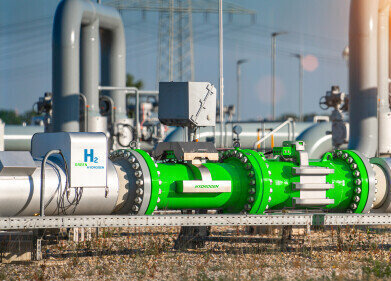Biofuel industry news
Renewables, including biofuel, must triple by 2030, demands COP28
Dec 18 2023
In 2012, the Intergovernmental Panel on Climate Change, which has been producing the world’s premier scientific reports on all aspects of the climate crisis since 1988, released its first comprehensive investigation into the prospects of different renewable energy sources for mitigating greenhouse gas emissions. Among the usual suspects – wind, solar and hydropower – was a controversial addition: bioenergy. This inclusion illustrates a crucial difference between renewability (in which the source materials of energy can be quickly reproduced, rather than simply depleted as fossil fuel materials are) and carbon-neutrality, often mischaracterised in mainstream discussions.
Made from biomass, biofuel and biogas represent renewable replacements for fossil fuels and natural gas – but not necessarily carbon-neutral replacements. Being composed of organic material, bioenergy releases carbon dioxide during combustion. Proponents, however, contend that these emissions are re-absorbed by the re-growing crops, rendering bioenergy de facto carbon neutral. In their report, the IPCC argue that when produced correctly, bioenergy is ‘able to deliver 80 to 90% emission reductions compared to the fossil fuel energy baseline.’ Nevertheless, achieving such reductions may prove to be quite the tightrope walk, as the IPCC acknowledge. Firstly, the pressures placed on land use by intensified production for bioenergy may increase instances of mismanagement and reckless conversions like deforestation, thereby depleting carbon stocks and undermining the carbon-neutral aspirations of bioenergy. Then, there’s the fact that the very climate crisis bioenergy aims to mitigate promises a revolution in agriculture, decimating many of the planet’s breadbasket regions, slashing crop yields almost everywhere and depleting freshwater sources. Even if the most ambitious mitigation measures are achieved, our future is one in which global agriculture is far more constrained and imperilled than it is today. In such a future, how much of our diminished agricultural resources will we be able to devote to the production of biomass for bioenergy?
Of course, as the report notes, there are ways of deriving bioenergy from agricultural residues or waste, rather than fermenting full crops – indeed, the IPCC’s figure of ‘80 to 90% emission reductions’ from bioenergy is partly premised upon ‘the use of biomass residues and waste’. But that’s going to need a lot of investment, so what did the delegates to COP28 have to say about bioenergy?
In the final text of the agreement, the Parties commit themselves to ‘Tripling renewable energy capacity globally [...] by 2030’, which is likely to include ramping up production volumes of bioenergy, as well as wind, solar and hydropower. That’s just 7 years’ time. In October at this year’s G20 summit, the Global Biofuels Alliance was announced, with participation from many G20 members, including Argentina, Brazil, Canada, India, Italy, South Africa, the USA, Bangladesh, Singapore, and the UAE as well as Sri Lanka, Kenya, Paraguay, Seychelles, Uganda, Iceland, Finland, Guyana, and Mauritius. Two of the Alliance’s members, the United Arab Emirates and Brazil, struck an important deal earlier this year in which the Emirates will provide Brazil’s world-leading biofuel producers with the capital to develop exporting capacities – a convenient investment for a petrostate in full swing looking to earn some carbon credits. But officials from Atvos, Brazil’s ethanol giant, spent their COP28 looking for even more investment beyond Abu Dhabi’s 30% stake, Energy Monitor reported.
Digital Edition
PIN 26.1 Feb/Mar 2025
March 2025
Analytical Instrumentation - Elemental Analysis for Quality and Process Control at Refineries, for Lubricants and Wear Metals in Engine Oils - Synthetic Lubricants: New Developments - Scaling...
View all digital editions
Events
Mar 17 2025 Houston, TX, USA
Mar 18 2025 Beijing, China
Mar 19 2025 Manila, Philippines
Mar 20 2025 Brussels, Belgium
Mar 20 2025 Guangzhou, China









.jpg)

.jpg)







